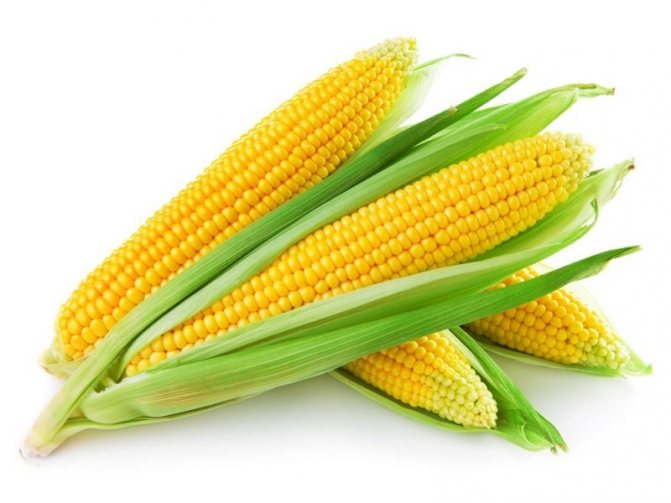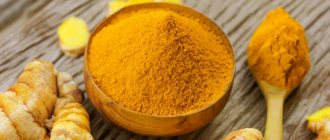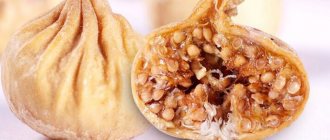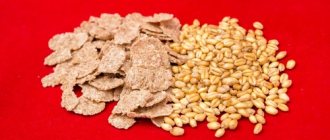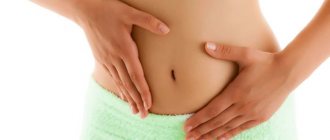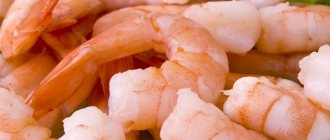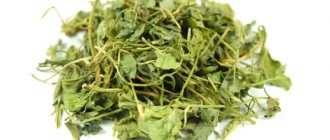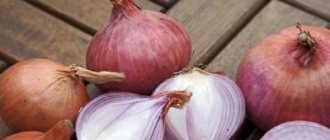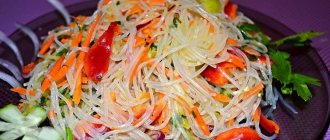What is popcorn made from?
The history of the product dates back to 1885, when the American Charles Critors created a machine for “exploding” corn grains. It was called "Popper".
What is popcorn made from? It is made from corn kernels that “explode” when heated. Inside the grains there is water with dissolved starch. After heating to 100 degrees Celsius, it boils, but cannot go into a gaseous state. There is no free space.
When the temperature rises to 230 degrees, the pressure inside the grain breaks the shell and steam rushes out.
The heated liquid softens the starch, which expands and hardens after cooling. Therefore, the volume of finished popcorn is several times greater than the raw material used.
Composition and calorie content
The composition of corn grains includes starch, fiber, polyphenols, and B vitamins. Popcorn contains macro- and microelements, including potassium, magnesium, sodium, iron, zinc, and phosphorus.
The nutritional value of corn grains is only 70 kcal, but this figure increases when fried. Calorie content of 100 g of product is:
- without additives - 380 kcal;
- salted - 400 kcal;
- in sweets - 450-500 kcal.
There are several varieties of popcorn. The classic product is prepared with butter, salt or sugar.
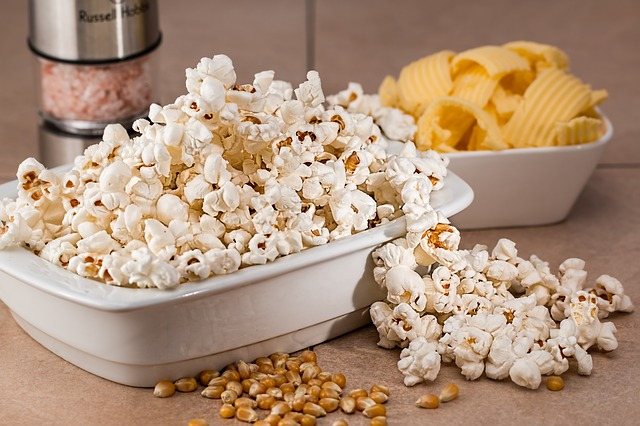
Additives are used to give corn grains a special taste. These can be spices, cheese, bacon, cinnamon, chocolate, peanuts and more.
Is popcorn good for women?
As you know, popcorn is made from corn. This is a very healthy cereal for the body, and puffed corn, thanks to this method of heat treatment, is doubly useful. Just 100 grams contains about 300 calories, which is almost the daily requirement of carbohydrates for an adult.
Popcorn is very nutritious and contains a lot of vitamins.
For example, popcorn contains B vitamins (specifically B1 and B2), which ensure proper functioning of the nervous system, remove harmful cholesterol from cells and normalize metabolism.

In addition, puffed corn flakes are rich in minerals, such as:
- Magnesium;
- Zinc;
- Potassium.
In addition, the composition includes iodine, the deficiency of which in central Russia is almost fatal. Its beneficial properties include a positive effect on the heart, liver and brain activity of a person. Puffed corn contains many beneficial chemicals - polyphenols. Polyphenols are a class of chemical compounds characterized by the presence of more than one phenolic group per molecule. Polyphenols are known as powerful antioxidants, plus they prevent the development of cancer and various heart diseases. This substance makes it impossible to have a heart attack or stroke. Popcorn is also rich in saturated fat, protein and carbohydrates.
Beneficial for the brain, blood vessels and skin - figs during pregnancy
Advantages
What is more in popcorn for pregnant women: benefit or harm? The product can have the following positive effects on the female body:
- Improves digestion. Fiber, minerals and vitamins in grains have a positive effect on this process. Eating popcorn reduces constipation in pregnant women, which is one of the main problems during this period.
- High protein content. The product, due to its composition, is beneficial for the growth of the child, especially in the 2nd and 3rd trimester of pregnancy. Popcorn as a source of protein helps in the delivery of amino acids to the body.
- Prevents premature birth. Selenium contained in popcorn reduces complications associated with childbirth and helps make the process timely.
- Correct fetal development. The product contains antioxidants that fight free radicals. This protects cells from damage and reduces the likelihood of future respiratory diseases in the fetus.
- Low-calorie popcorn without additives. During pregnancy, a woman is advised to eat foods that do not contribute to excessive weight gain. This is especially important because excess weight can put you at risk for preeclampsia, gestational diabetes, or miscarriage.
- Reduces blood cholesterol levels. By normalizing this indicator, the risk of a heart attack is reduced. During pregnancy, cholesterol levels may be elevated due to hormonal changes. Although it does not affect the baby, it may affect the woman's heart in the future.
- Stabilizes blood sugar levels. The fiber in popcorn can reduce this. In this regard, the product can reduce the risk of developing gestational diabetes.

When women wonder whether pregnant women can eat popcorn, they initially consider its positive properties. However, besides these, the product also has disadvantages.
Corn dishes
Since any dish can affect the condition of both mother and baby during breastfeeding, a young mother can try a little of everything, but with great caution.
- Boiled corn can be eaten once a week. When cooking, add salt in small quantities.
- Corn flakes are a healthy and tasty product, but since chemical sweeteners and palm oil are often added to the composition, you need to choose the option with a minimum of additives, that is, as natural as possible.
- Milk porridge made from corn grits. This dish is quite suitable for a nursing mother, but you should pay attention to how the baby will behave after such a breakfast. If such food does not cause him colic, you can allow yourself to eat it often.
- Salad with canned corn. This dish is allowed to be consumed during breastfeeding. However, you can eat it no more than once a week - preservatives can harm the growing body.
- Soup with corn kernels is a completely acceptable dish during breastfeeding.
Corn sticks are not recommended for use during breastfeeding. A large amount of sugar and flavor enhancers included in the composition can harm the child’s health.
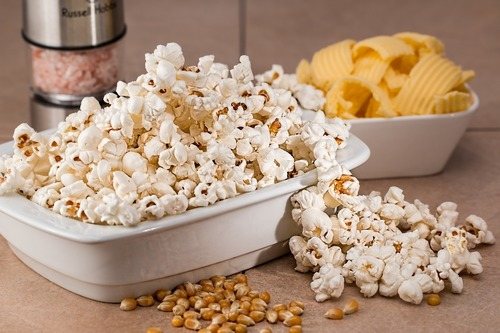
If the baby is prone to allergic reactions or often suffers from digestive system disorders, colic and constipation, only a specialist can correctly answer the question of whether a nursing mother can eat corn. The pediatrician will sensibly assess the situation and recommend how best to eat such foods, at what time and under what circumstances. In order not to harm the baby, it is necessary to adhere to the basic nutritional rules, which are recommended by any doctor who has been observing the child from the first days of his life.
How to eat the product correctly?
Can pregnant women eat popcorn in the first trimester? In the first months of bearing a child, you should limit its consumption, due to the negative impact on the body of the expectant mother.

Pregnant women can use salt, oil and seasonings in subsequent months, but reduce their quantity. If the expectant mother is sure that the popcorn is properly prepared, without adding flavorings, then she can enjoy its taste.
What are the risks of eating popcorn during pregnancy?
In addition to the benefits, the product also has a negative effect on the body. Popcorn is not recommended to be included in the diet during pregnancy due to:
- Adding dyes and flavors to the product, which can negatively affect a woman’s liver.
- A large amount of salt leads to an imbalance of water balance, and what is especially dangerous during pregnancy - to edema.
- Flavoring additives lead to exacerbation of diseases of the gastrointestinal tract (ulcers, gastritis).
- Strongly flavored popcorn is made with diacetyl, a carcinogenic chemical linked to Alzheimer's disease and lung dysfunction.
Can pregnant women have sweet popcorn in movie theaters? Women are not recommended to consume the finished product due to increased blood glucose levels.
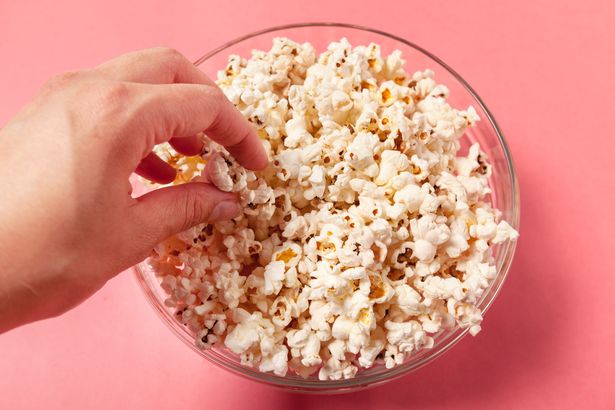
The abundance of flavoring additives and fats make the delicacy extremely dangerous for the health of mother and child.
However, women are not prohibited from eating popcorn that they make themselves. To do this, purchase corn grains without any additives. Then fry in a frying pan. Ready-made cereal should not be sprinkled with salt or sugar.
Is popcorn harmful for young people?
What is the harm from this wonderful product? The main problem is that most cinemas add a very harmful food additive to the popcorn - diacetyl. This sweet and creamy chemical is commonly used as a flavoring agent. If it is heated too much (and high temperatures are generally inevitable when making popcorn), it has a negative effect on the general condition of the human respiratory tract. In addition, microwave popcorn is bad for the body, partly due to the wave energy it contains.
Types of popcorn with additives that are not very healthy:
- Salted popcorn retains water in the body and disrupts the water-salt balance; it contains monosodium glutamate, which is not very healthy.
- Popcorn with flavors such as bacon, cheese and caramel can cause cancer, gastritis and ulcers in the stomach and intestines.
- Sweet popcorn is too high in calories and causes obesity, and also puts a critical load on the pancreas.
Popcorn is not particularly healthy for children and teenagers, so its consumption should be kept to a minimum. Of course, you have to try hard to get poisoned by popcorn, but this treat can be harmful.
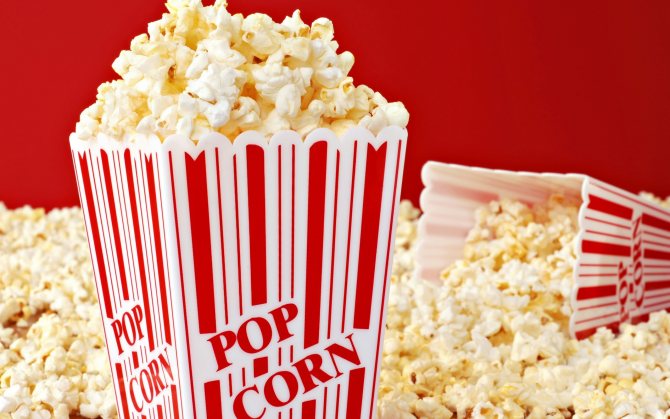
You should not indulge in it if you have constipation or skin problems.
How to deal with these negative consequences? The conclusion suggests itself. A person who cares about his health needs to make his own popcorn. To do this, you need to take unflavored popcorn kernels (they are sold in many supermarkets). They can be fried in a frying pan using ordinary sunflower oil, or cooked in the microwave. Blogger Katya jokingly talked about making popcorn - 15 minutes, and the tasty and healthy treat is ready.
Grapefruit during pregnancy: 10 positive qualities
Experts' opinions
Popcorn, which attracts women with its pleasant smells and variety of tastes, is best excluded from the diet. Doctors are sure of this too. The harm of such a snack exceeds the benefit that popcorn, which does not have a distinct smell and taste enhancer in its composition, will bring.

Products cooked in the microwave are especially dangerous. Pregnant women should avoid it.
The simplest puffed corn prepared at home will not negatively affect the health of the expectant mother or the development of the child.
A woman must follow safety precautions when preparing delicacies and not abuse them. It’s just that some of them have a huge appetite and begin to eat for two. This does not have a positive effect on health, but only leads to obesity.
How to make popcorn yourself?
Can pregnant women have popcorn? The product should not be consumed in large quantities, but it is best to prepare it yourself. Such a product will only bring benefits to the body of a pregnant woman.
To prepare it you will need the following products:
- corn grains without any additives in sealed packaging;
- sunflower or edible coconut oil.
The process of making popcorn is as follows:
- You need to take a 3-4 liter saucepan, after wiping it dry.
- It is necessary to evenly distribute 2-3 tbsp along its bottom. spoons of butter. Then place on the stove and heat to the desired temperature.
- To know when it's time to throw in the corn, you can add one kernel and wait. If it bursts, then the oil is hot enough.
- You need to pour a little popcorn into the pan so that it is evenly distributed along the bottom. It is imperative that the grains interact with the oil. It must be taken into account that the volume of the finished product is several times greater than the raw material.
- Cover the pan with a lid and wait for 2-3 minutes.
- It is removed from the heat when the grains stop “exploding.”
Popcorn prepared in this way can be consumed in small quantities during pregnancy, because it will not harm the body.
Possible harm and contraindications
Many women are interested in the question: can corn be eaten while breastfeeding? Yes, you can, but you shouldn’t get carried away, since with excessive consumption there is a high chance of increased gas formation, stomach upset in the mother and colic in the child. Well, this can cause crying and poor sleep.
Corn is recommended for breastfeeding, but in small quantities. Particular attention should be paid to the quality of corn flour, since baking from contaminated raw materials can lead to a disease such as celiac disease, which affects children under one year old. Women suffering from thrombosis and with an increased rate of blood clotting should treat this cereal with caution.
